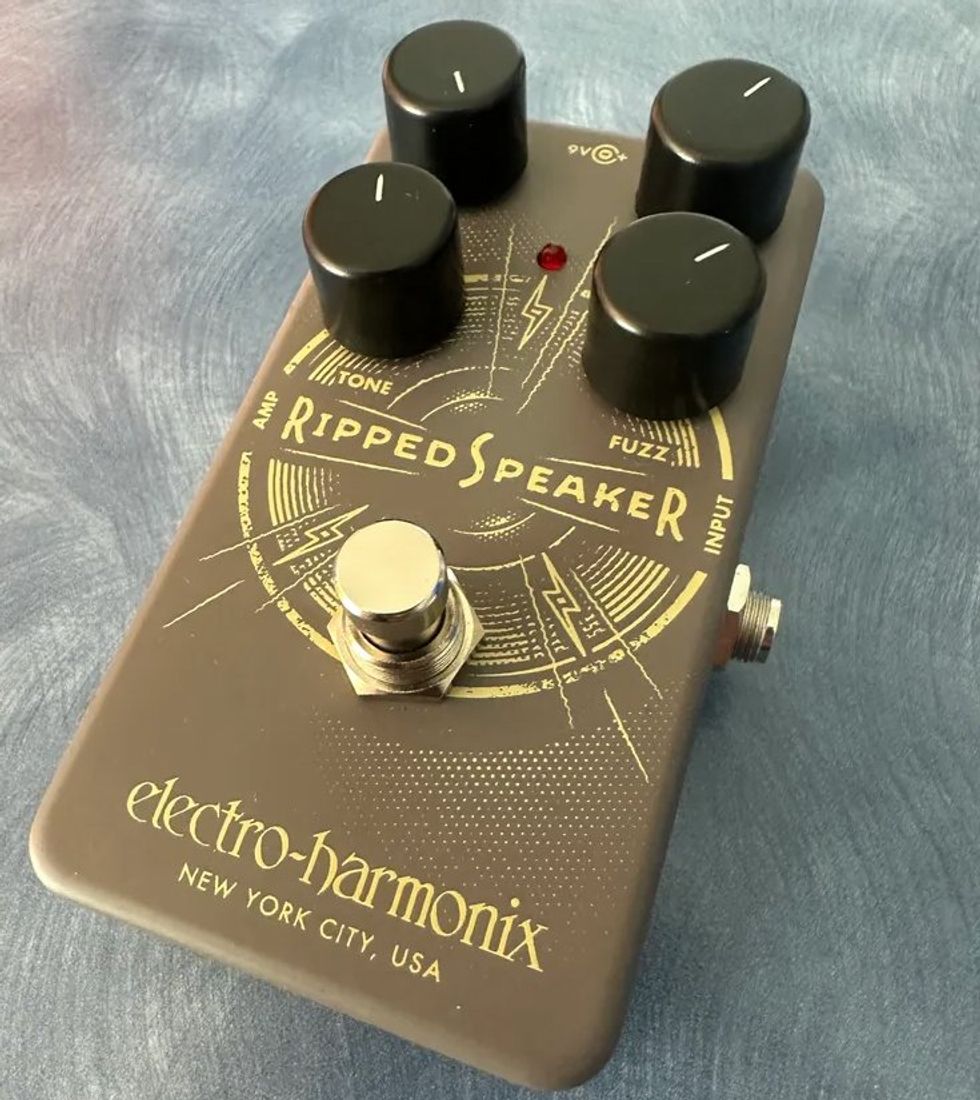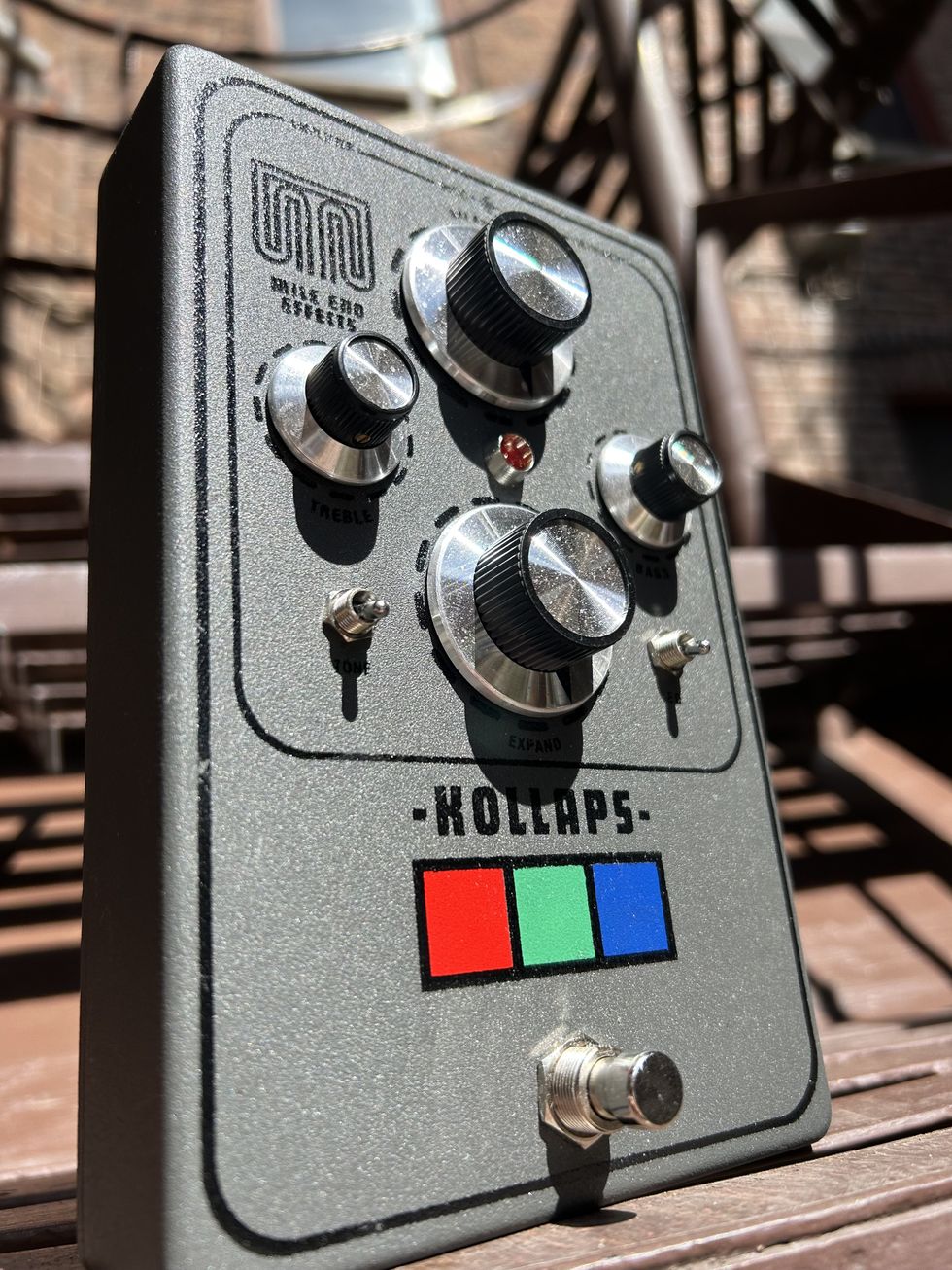We guitarists are a strange bunch. Deep
inside, many of us harbor an intense fascination
with all things technical, challenging,
and impressive. We always seek out
the riffs that seem impossible and that
will make heads turn and jaws drop.
“I swear it looked like he had eight hands
when he was playing. I could never do
that!”
“Did you see him play that! How could
any human physically do that?”
It’s part of our DNA and for most of us,
it’s what makes us internally tick as guitarists.
It’s like an unspoken language of
sneaky winks, inside jokes, and secret
handshakes among us 6-stringers.
“Hey, kid in the front row with your arms
folded with that ‘impress me/you suck’
look … this riff is for you!”
Leaving the Planet
It’s our one-upmanship that separates
the men from the boys, so to speak, and
aligns the hierarchy of hero worship with
earned respect. We all know the badass
guitarists that play like they are from
another universe. But as soon as we leave
the very tiny world of Planet Guitar, we
have to deal with something even more
intimidating and challenging—music. Not
that being a great guitarist isn’t about
music per se (yeah, we deal with notes
and all that), but sometimes being a musician
can be even more difficult.
It’s one thing to have the tricky, fast licks
that others of your kind find impressive,
but it’s a whole other deal to turn those
raw tools of technique into something
that people actually want to hear repeatedly
and are emotionally moved by.
Ultimately, no one really knows how difficult
that riff is or how many months it
took you to perfect a technique. It comes
down to this: Can they feel it? Are they
buying the emotion that you are conveying?
Have you made a connection that
takes them somewhere different?
In my estimation, it comes down to songs
and melody. These are the cornerstones
that everything we do should be built on.
Think of some of the great guitar music of
the last decade or so, whether it’s a whole
tune or just the solo. For the most part,
everything that comes to mind is going to
involve a solid song with a catchy melody
or hook.
Who couldn’t be snagged by the great
feel and melody of Eric Johnson’s “Cliffs
of Dover?” Even though it’s a boogie-feel
tune, I’ll bet you can hum just about every
part of “Satch Boogie” without fail. “Still
Got the Blues” by Gary Moore stands out
as one of the greatest, simplest melodies
in modern times. For me, Neal Schon has
always been at the top of my list because
you can basically hum every one of his
solos, and constructing melodic solos
is an art onto itself. The list can go on
and on, but realize that aside from some
searing guitar work interspersed in these
songs, there is actually melody and a well-written
composition. In fact, the solo is
the composition!
Get out of The Way
As strange as this sounds, I believe the
ability to do this kind of writing and soloing
actually stems from putting aside
thinking like a guitarist for a moment and
approaching the music from another perspective.
What line would fit best here?
Can I sing it? Are there too many notes?
Is there some sort of theme involved? Is
the melody line taking you somewhere or
telling a story, so to speak? Is there space
and room in the playing?
I think there’s a misconception that if
you’re playing slowly, you’re playing
melodically. Melodic playing has little to
do with the rate at which you play the
notes, but rather what you are actually
saying with them. My example above,
“Cliffs of Dover,” is a great study of playing
melodically at a fast clip, but still
maintaining a theme and a focus that carries
through the song, whereas in “Always
With You, Always With Me,” Satch opts
for a gorgeously slow and expressive line
that is easily memorable.
The bottom line is to get out of our own
way let the song guide us as to what to
play. I’ve been in sessions where musicians
refuse to accept the suggestions
that the producer (or the tune itself) is
presenting because it isn’t flashy enough
or is thought to be below a virtuoso level.
You know some people have a reputation
to maintain!
I was in the studio years ago in a similar
situation trying to figure out something
to play over an E major progression I had
just come up with. I tried all of the various
riffs that were in my fingers and every
guitar-centric fumbling I knew. Nothing
was clicking. Finally, I stepped back to get
a fresh perspective on the song. I outlined
the progression in simple triads with a bit
of ornamentation and the result was what
you might know as my tune, “I’m Alright.”
It was this lesson of getting out of my
own way of preconceived notions of what
a guitarist would play and instead let the
song dictate my part.
Neil Zaza
Neil Zaza tours the world constantly, playing his own brand of melodic instrumental guitar. He is currently recording his latest album, 212, and you can visit him at neilzaza.com as well as facebook.com/neilzazamusic.





























